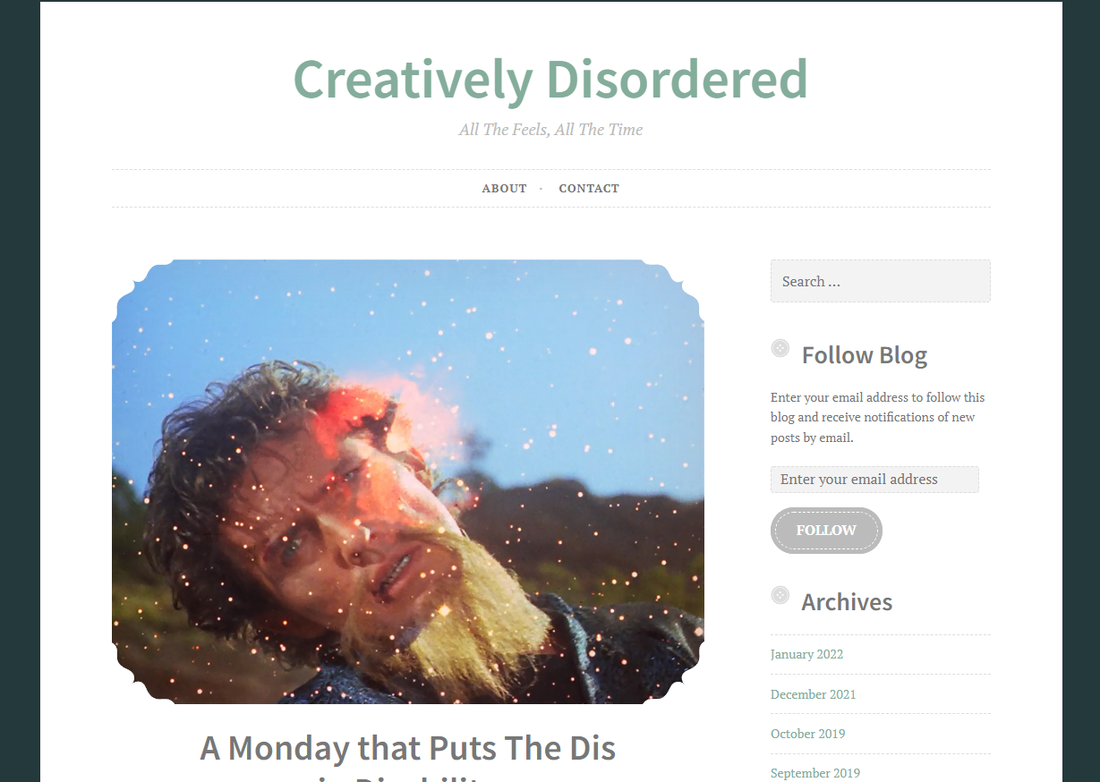|
This weekend, a friend of mine complimented me about how friendly and extroverted my boyfriend and I are. Yeah, be me and feel that internal record scratch. I was polite and didn't go into a whole rant about it or anything. I just laughed it off and told her thank, but I was definitely an introvert. She was super kind and then just edited herself to say she admired how talkative I can be in a social setting even though I'm an introvert. Apparently (as she's an engineer like the boyfriend) a lot of her friends were the kind of people who would just quietly hide in the corners of social events and be very awkward about it. I, on the other hand, was leading the conversations with said boyfriend. At this point, I didn't know how to explain all the disorderly and personal reasons I'm a talkative introvert. So, I just blamed it on being the only kid in a family full of adults. But this isn't my first time dealing with the "extrovert" problem. Actually, I myself was team "call Stephanie an extrovert" for a long time. That is, until I got my head straight and realized that wasn't true at all. I learned that I am adept at the "extrovert" trick. AKA, despite my proclivities, I am fantastic at fooling people into thinking I am one. Y'see, of my friend groups I was always the most talkative. In my major, I had a class where I was jokingly ID-ed as "extrovert island". I have always been amicable and very try-hard about making people like me and pleasing them. Hell, I used to take baked goods to class once a month. I was that kid. I also became the "mom" of every friend group I joined. I would take great interest in my friends, make them food, be their shoulder to cry on, settle all disputes, etc. It was like I was drawn to being this caretaker even though it wasn't really me.
And I think I assumed people would hate me if I stopped. Granted, to give younger me some merit, I don't really have any of those friends anymore. But there are several reasons that I think contribute to the "extrovert" trick I've mastered, and I think it would be interesting to analyze them. Here we go: 1.) Only Adults: It wasn't a complete lie that my upbringing probably helped lead to my fake extroversion. I was the only kid at any family party and I hung out with adults the entire time because my mom didn't want to abandon me. I learned how to listen to adults, hear their feelings and laughs and hard times. My emotional maturity grew up quick, hearing all these things people much older than me struggled with. And I'm sure the way I interacted with others changed because of it, too. 2.) People Pleaser: I had an unfortunate amount of trauma in my childhood, so people pleasing became a default. I couldn't fix the bad things, but I could do everything possible to protect people and make it better, right? I became less of a human girl and more of this voracious entity, floating around my friends and begging them to let me take care of them. And they let me. So that's one way to learn what people want you to say. 3.) Hyper-Introversion: In a bizarre way, I think that my introversion is part of the reason I can be good with people. Hear me out. I am one of the few introverts I know who feel like they get enough alone time to themselves. I work all day alone, I sometimes spend my evenings writing or enjoying stories on my own, I really fill up my meter of "needs to personally recharge". That means that, whenever I see people, I'm supercharged and ready to use that energy. Also, I learn and research and create so much in that alone time that I always have new things I've learned to talk about. 4.) Spectrum-Ish: But, the reason I think is the most accurate is my Spectrum status. I've talked about it more on my Twitter lately (@Steph_Marceau), but I'm what I call "Spectrum-Ish". Basically, I don't have the means to get tested ( a whole different novel) but my therapist and I are fairly certain I am somewhere on the Autism Spectrum. Because of said Spectrum-ish, I have certain things I really like. I could talk for hours about adventures with my boyfriend, psychology, advocacy, the environment, books, movies, writing, etc. Ergo, if I can lead a conversation, I can become the conversation, introversion be damned. I just get very excited and animated talking about these things. If I end up around other introverts and can become the captain? Well, I seem very extroverted, don't I? Spouting out stories and concepts endlessly. But get me around other extroverts and I get quiet, quick. That, or around people who like to talk more than me. I never stop being an introvert. It's just if I get to talk about the things I hyper-focus on, of course I have a million things to say. That's how its been all my life with all my introverted friends and colleagues. Conclusion? So, at the end of the day, what's the purpose of analyzing all of this? Well, for me its a neat way to catalog the different ways my disorders and history interact to make me. Different aspects of oneself interacting create unique and different dynamics in a person's own head, and that can explain how an introvert can pass for an extrovert so easily. But for everyone else? I guess this was just a serious example of how things are not always what they seem. After all, with my friend's extrovert assumption she might have thought I liked big events with lots of people. Or maybe had a bunch of friends and did social things. That is very false. I hate them. I even found the five person party a little tiring at times. All it took was my talkativeness, based on a bad people pleasing habit and talkative Spectrum-Ish-ism, to get her to think a totally wrong perception. So how many wrong perceptions a day do we all make because we see everything our own way all the time? I will not be lame enough to say "put yourselves in other people's shoes". That's dumb. But it doesn't make the wildly different perspectives of the world any less interesting and add complicated layers to all our interactions with each other. And that's always something neat to talk about.
0 Comments
Leave a Reply. |
|


 RSS Feed
RSS Feed
